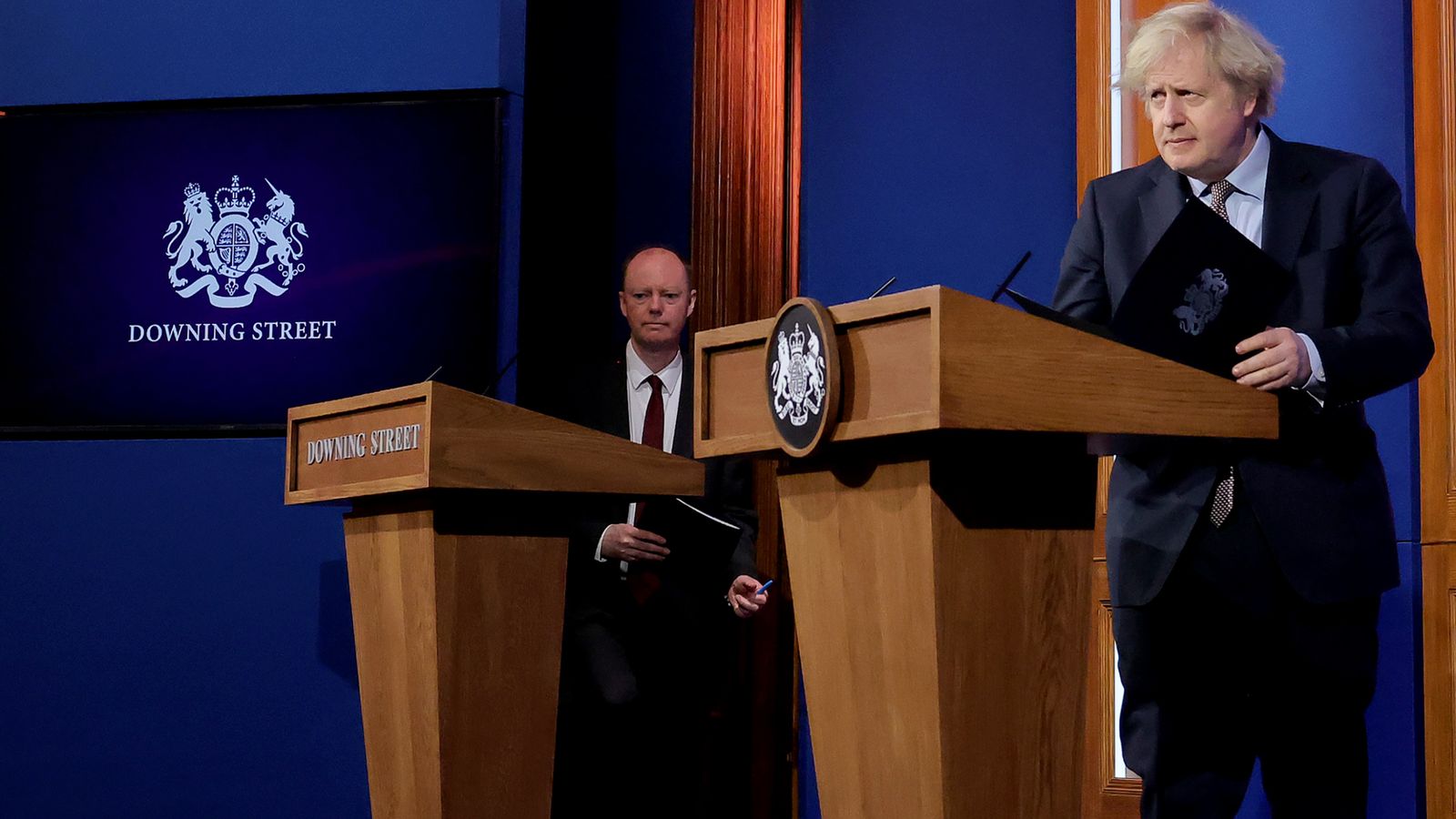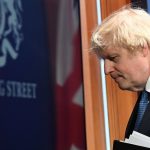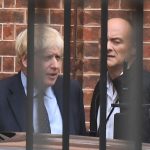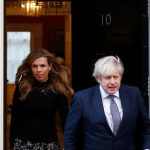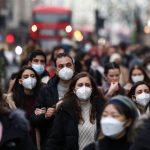The clocks have been brought forward to mark the start of British summer time, the temperature has soared and England on Monday took a sun-bathed step towards freedom.
Socialising in groups of six or two households and outdoor sport allowed once more: a nation taking the second step on the prime minister’s road out of the long winter lockdown.
Boris Johnson, enjoying his own change of scenery too as he gave his first news conference from Downing Street’s new £2.6m media briefing room, told the public to take advantage of the looser restrictions and go and have fun.
The “stay at home” message shifting to “stay outdoors”.
“The way to continue on our cautious but irreversible roadmap to freedom is to follow the rule and remember: hands, face, space and fresh air,” he said.
Please use Chrome browser for a more accessible video player
But these small freedoms come with a big dose of caution: the rise in cases is inevitable, but should be modest, if people follow the guidance and stick to meeting outdoors; there is still the danger of importing new variants from abroad; so don’t relax on social distancing just yet.
With over 50% of the UK’s adult population – more than 30 million people – having received their first vaccine dose and 3.7 million people having had both jabs, our wall against COVID is building.
But when I asked Professor Chris Whitty, England’s chief medical officer, whether we could at least relax about the prospect of a third wave in this country because of the hugely successful vaccine roll-out, he was clear we should remain on guard.
“It is not a complete wall, it is a kind of leaky wall,” he said.
“Therefore, there will always be some people who either have chosen not to be vaccinated, or where the vaccine has had much less effect.”
Look beyond the rhetoric and the words of caution and the data is, as my colleague Ed Conway points out, encouraging.
Please use Chrome browser for a more accessible video player
Over 90% of the over-70s have been vaccinated; hospitalisations for the over-65s are falling faster than among the under-65s; infection rates are ticking upwards in some school and university age groups but not all; and, as a country, the UK now has some of the lowest infection rates among major European countries.
Yet with the watchword for the prime minister being an “irreversible” roadmap for lifting lockdown, the government is unwilling to take any risks.
After stops and starts over last winter – culminating with Christmas being cancelled for millions of families just six days before the big event – this time around the government is determined to move forward at a pace which means it will not have to move back.
The pressure from backbenchers to accelerate the lifting of the lockdown has fallen on deaf ears – even though ministers privately acknowledge that keeping on the brakes past Easter will only get harder as more and more people get jabbed.
And while the prime minister has told us when our lives will be unlocked, we’re still in the dark about what our “new normal” will look like.
Please use Chrome browser for a more accessible video player
There are a number of reviews – on COVID certifications, international travel and social distancing – that are still underway.
We don’t yet know if we’ll be allowed into the pub without some sort of proof we’re COVID-free, or be allowed to fly away on a summer holiday.
Michael Gove, the cabinet minister in charge of the COVID certification review, on Monday held a round table with a couple of dozen cross-party MPs to canvass views about what sort of COVID requirements people should live with to go about their everyday lives once we fully unlock.
One person on the call told me there were pragmatic MPs who are prepared to accept COVID “papers” as long as they are temporary, and then libertarian Tories (and Lib Dems) who will resist this sort of surveillance on our lives.
Subscribe to the Daily podcast on Apple Podcasts, Google Podcasts, Spotify, Spreaker
While the review is ongoing, Whitehall sources have been clear that some sort of COVID certification – be that proof of a COVID vaccine, immunity or negative test – will play a role in our domestic daily lives.
Mr Gove promised MPs appropriate parliamentary scrutiny – debates or votes – should the government opt for such measures.
The roadmap is settled and on track, the country now finally moving in the right direction – hopefully along a one-way road out of lockdown.
But what living with COVID looks like beyond the end of lockdown on 21 June is still a work in progress.
COVID has not just changed our lives over the past year, it could change our future liberties too.
